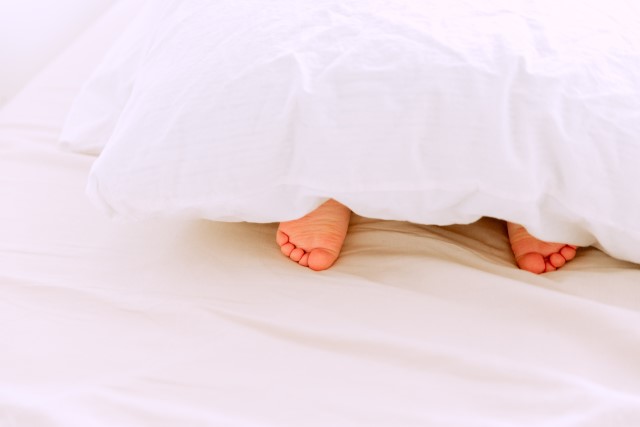Do you often find yourself tossing and turning in bed for hours on end, struggling to get even a few minutes of shut-eye? Unfortunately, millions of people around the world suffer from sleep deprivation, and it can be incredibly frustrating trying to fix the issue. Not only is it frustrating, but it can also harm your overall health and cause serious problems. This guide will discuss all the possible causes of sleep deprivation and offer some solutions that should help you finally get a good night’s sleep!
The Possible Causes of Sleep Deprivation
Stress and Anxiety:
One of the most common causes of sleep deprivation is stress and anxiety. Stress and anxiety are often described as a “vicious cycle,” where the more anxious and stressed you are, the worse your sleeping patterns become. This can be due to several factors, such as work or personal life matters, leading to increased levels of cortisol in the body, which makes it harder for you to fall asleep.
Poor Sleep Hygiene:
If you have poor sleep hygiene habits, this can also contribute to sleep deprivation. Poor sleep hygiene includes things like having an irregular sleep schedule, using electronic devices before bedtime, eating late at night, and doing exercises before bedtime. All these activities can disrupt your natural circadian rhythm making it harder for you to fall asleep.
Medical Conditions:
Certain medical conditions can interfere with your sleep and cause chronic insomnia. These include conditions such as depression, anxiety disorders, bipolar disorder, thyroid problems, and sleep apnea. Therefore, it is important to talk to your doctor about any medical conditions you may have that could be affecting your sleeping patterns.
Caffeine or Alcohol Use:
If you are drinking too much caffeine or alcohol during the day, this can also interfere with your sleep. Both of these substances act as stimulants and can make it harder for you to fall asleep at night. Therefore, it is best to limit your caffeine and alcohol intake during the day if you are having trouble sleeping.
Uncomfortable Bedroom Environment:
Another cause of sleep deprivation can be an uncomfortable bedroom environment. This includes things like having a mattress that is too hard or too soft, not having enough blankets to keep you warm, and having a room that is too noisy or bright. All these factors can make it difficult for you to fall asleep.
Solutions to Help You Sleep Better

Create a Relaxing Bedtime Routine:
Creating a relaxing bedtime routine should help you get better quality sleep at night. This involves calming activities such as reading, listening to music, taking a hot bath, and drinking chamomile tea before bed. These activities will help you relax and prepare your body for sleep.
Experiment with Natural Aids that Are Soothing:
Using natural aids such as chamomile tea or lavender oil can help promote better sleep. You can also experiment with THC or CBD products to help you sleep better. These Delta 8 Gummies are a great way to relax your body and help you sleep. However, it is important to consult with your doctor before taking anything, as they can have adverse side effects.
Be Active during the Day:
Exercising during the day can help you sleep better at night. Studies have shown that regular physical activity can improve your overall sleeping patterns. Additionally, engaging in activities such as walking or yoga can help you feel more relaxed before bed.
Cut Down on Caffeine and Alcohol:
Limiting your intake of caffeine and alcohol during the day can also help you get better sleep at night. Both substances act as stimulants, so limiting your consumption is best to avoid disrupting your sleeping patterns.
Create a Bedroom Environment that is Conducive to Sleep:
Creating a comfortable and conducive environment can be a great way to improve your sleeping patterns. This includes having the right mattress, temperature, and noise levels in the bedroom. Additionally, using blackout curtains or eye masks can help you sleep better at night.
Getting a good night’s sleep is essential for overall health and well-being. If you are struggling with chronic insomnia, then it is important to take steps towards getting better quality sleep. This includes creating a relaxing bedtime routine, experimenting with natural aids such as chamomile tea, exercising during the day, limiting caffeine and alcohol consumption, and creating an environment that is conducive to sleep. Taking these simple steps can help you get a good night’s sleep and live a healthier, happier life.



